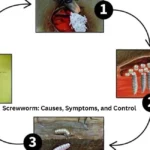Polycystic Ovary Syndrome, or PCOS, is a prevalent hormonal disorder impacting countless women globally. This complex condition is primarily characterized by a hormonal imbalance, often leading to irregular menstrual cycles, ovarian cysts, and elevated androgen levels. Beyond its reproductive implications, a significant feature of PCOS is insulin resistance, which intricately links the syndrome to metabolic health and can increase the risk for type 2 diabetes.
Understanding the multifaceted nature of this endocrine disorder is the crucial first step toward effective management and improved quality of life for those affected.
What Exactly is PCOS?

PCOS is a hormonal disorder characterized by a combination of signs and symptoms that result from an imbalance of reproductive hormones. The name “polycystic ovary syndrome” describes the numerous small cysts (fluid-filled sacs) that often form on the ovaries. However, it’s crucial to understand that some women with PCOS do not have cysts, and having ovarian cysts does not automatically mean you have PCOS. The diagnosis is based on a specific set of criteria beyond just cysts.
The Three Key Symptoms of PCOS
A formal diagnosis of PCOS typically requires that a woman experience at least two of the following three main symptoms:
-
Irregular or Absent Periods: This is the most common characteristic. Ovulation may not occur regularly, leading to infrequent, unpredictable, or prolonged menstrual cycles.
-
Excess Androgens: Elevated levels of male hormones (like testosterone) can cause physical signs such as hirsutism (excessive facial and body hair), severe acne, and male-pattern baldness (thinning hair on the scalp).
-
Polycystic Ovaries: Enlarged ovaries that contain numerous small, fluid-filled follicles that surround the eggs, as seen during an ultrasound examination.
Uncovering the Root Causes of PCOS

The exact cause of PCOS is not yet fully understood, but several key factors are believed to play a significant role:
Insulin Resistance: A majority of women with PCOS have insulin resistance, meaning their cells can’t use insulin effectively. This prompts the pancreas to produce more insulin, which in turn may boost androgen production, causing ovulation difficulties.
Heredity: Research suggests that certain genes might be linked to PCOS, meaning it can run in families.
Low-Grade Inflammation: Women with PCOS often have increased levels of inflammation in their bodies, which can stimulate polycystic ovaries to produce androgens.
How is PCOS Diagnosed?
Diagnosing PCOS involves a multi-step process. There is no single test. Your doctor will typically:
-
Review your medical history and discuss your menstrual cycles and symptoms.
-
Perform a physical exam to check for signs of excess hair growth, insulin resistance, and acne.
-
Conduct blood tests to measure hormone levels (androgens, insulin, cholesterol) and rule out other conditions.
-
Perform a pelvic ultrasound to examine the appearance of your ovaries and the thickness of your uterine lining.
The Long-Term Health Risks of PCOS
Managing PCOS is crucial because it is associated with several serious long-term health risks, including:
Type 2 Diabetes: Over 50% of women with PCOS will develop diabetes or prediabetes before age 40.
Infertility: PCOS is a leading cause of female infertility due to irregular ovulation.
Heart Disease: Risks for high blood pressure, high cholesterol, and heart attack are higher.
Endometrial Cancer: Irregular periods can cause a build-up of the uterine lining, increasing risk.
Sleep Apnea and Depression: The metabolic and psychological impacts of PCOS contribute to a higher prevalence of these conditions.
Effective Medical Treatments for PCOS

While there is no cure for PCOS, symptoms can be effectively managed. Treatment is highly individualized but may include:
Hormonal Birth Control: Pills, patches, or rings can regulate menstrual cycles, reduce androgen levels, and clear acne.
Metformin: A diabetes medication that improves insulin resistance and can help regulate periods.
Fertility Medications: Drugs like Clomiphene or Letrozole can stimulate ovulation for women trying to conceive.
Anti-Androgen Medications: These drugs block the effects of androgens and can reduce hair loss and growth.
The Critical Role of Diet and Nutrition in Managing PCOS
Dietary changes are a cornerstone of managing PCOS. The goal is to manage insulin levels. Key strategies include:
Choosing complex carbohydrates (whole grains, legumes) over simple carbs (sugar, white bread).
Eating a balanced diet high in fiber, lean protein, and anti-inflammatory foods (like leafy greens, berries, and fatty fish).
Focusing on healthy fats and avoiding processed foods.
Why Exercise is Non-Negotiable for PCOS Management
Regular physical activity helps lower blood sugar levels, improve insulin sensitivity, and aid in weight management. A combination of:
Aerobic Exercise (like brisk walking, swimming, or cycling)
Strength Training (to build muscle, which burns more calories and improves metabolic health)
is considered most beneficial for managing PCOS.
Mental and Emotional Well-Being with PCOS
Living with PCOS can be challenging and is often linked to higher rates of anxiety, depression, and poor self-esteem. Managing mental health is just as important as physical health. Seeking support from a therapist, joining a PCOS support group, and practicing stress-reduction techniques like yoga and mindfulness can be incredibly helpful.
Living a Full Life with PCOS
A PCOS diagnosis is not a life sentence. It is a manageable condition. By understanding the syndrome, building a strong healthcare team, and adopting sustainable lifestyle habits, women with PCOS can effectively control their symptoms, reduce long-term health risks, and lead healthy, fulfilling lives.
FAQs
How to remove PCOS?
PCOS cannot be completely cured, but it can be managed through diet, exercise, and medical treatment. Lifestyle changes greatly reduce symptoms.
What lifestyle causes PCOS?
Unhealthy eating, lack of exercise, stress, and poor sleep can worsen PCOS symptoms. Genetics also play a major role.
What are female PCOS symptoms?
Symptoms include irregular periods, acne, weight gain, excessive hair growth, and fertility problems.
How did you find out you had PCOS?
Most women discover PCOS after irregular cycles, weight issues, or infertility, confirmed by ultrasound and blood tests.
What is the root cause of PCOS?
The root cause is hormonal imbalance, often linked with insulin resistance and genetics.
What is the first stage of PCOS?
The first stage is usually irregular or missed periods along with early signs of hormonal imbalance.
How did I suddenly get PCOS?
PCOS doesn’t appear suddenly; symptoms build over time due to hormonal and lifestyle factors.
What foods should I avoid with PCOS?
Avoid processed foods, sugary drinks, fried snacks, and refined carbs, as they worsen insulin resistance.
Does PCOS cause painful periods?
Yes, some women with PCOS experience painful and heavy periods due to irregular ovulation.
How to test for PCOS?
Doctors test PCOS through blood hormone levels, pelvic ultrasound, and medical history.
How to stop PCOS weight gain?
Follow a low-GI diet, exercise regularly, manage stress, and take prescribed medication to control PCOS weight gain.
Is egg bad for PCOS?
No, eggs are good for PCOS as they are high in protein and healthy fats, but moderation is key.
Conclusion
In conclusion, PCOS is a multifaceted condition that demands a comprehensive and proactive approach to management. From its hallmark symptoms of irregular periods and hormonal imbalances to its significant long-term health implications, understanding PCOS is the first step toward taking control. Success lies in a personalized strategy that combines medical intervention, mindful nutrition, consistent physical activity, and dedicated mental health support. By embracing this holistic path, individuals with PCOS can not only manage their symptoms but also thrive, paving the way for a healthier future.





Pingback: Diarrhea: Causes, Symptoms, And Treatment